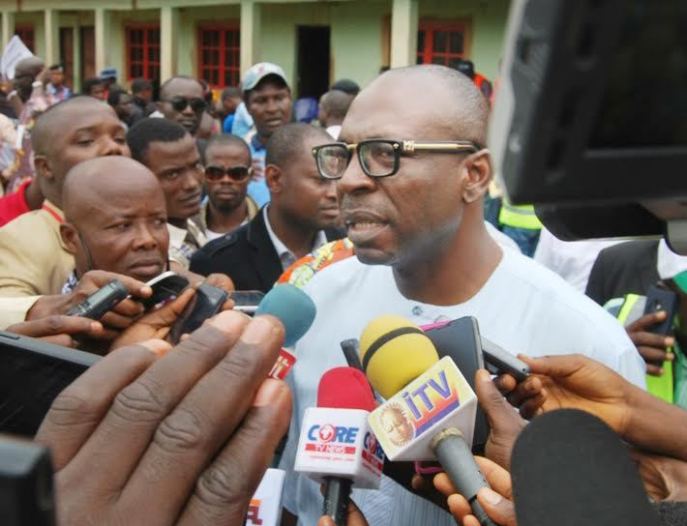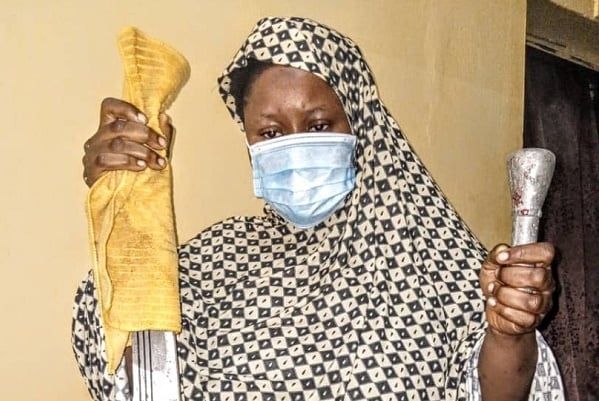Southern Kaduna children, women devastated by killings | TheCable.ng
The echoes of conflict tend to reverberate long after the drums of war are beat and have faded. The victims of strife are often the weak, disenfranchised and powerless. In spite of their mute voices and non-roles, they tend to bear the heaviest brunt of conflicts while the main players march to the beat of their own drum. As the world grappled with COVID-19 in recent months, bloody violence raged through southern Kaduna — displacing, disabling and devastating women and children. This is their maddening tale of loss, pain, and despair. KOLAPO OLAPOJU reports
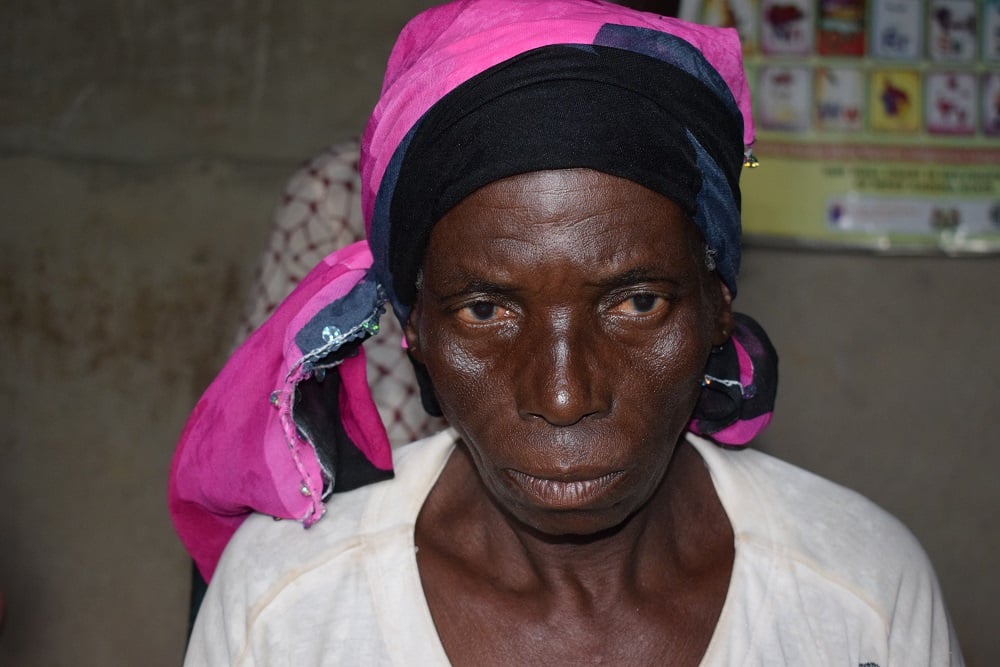
PEACE DISABLED
“Nothing can make me be at peace again,” she muttered under her breath, slowly raised her head and added emphatically: “I will never forgive them.”
Her eyes are sunken with age. The white of her eye is far from white; bleak and blurry after months of crying while the world slept. The furiously pouring rain which is making its impact felt on the rusted metal roof firmly holds her gaze. Soon enough, tears flow forth from her eyes, dropping in unison with the rain.
Advertisement
Saraya John’s world was turned upside down in the wee hours of May 18 when armed bandits suspected to be herdsmen raided Maikali, a village in Kajuru LGA of Kaduna. When the attackers made their presence felt, she was home alone with her visually impaired husband. His disability proved to be a fatal Achilles heel. He did not make it far before he was killed. Before 65-year-old Saraya returned to the village, he had been buried in a mass grave. She never got the chance to say goodbye.
Saraya is one of the hundreds of women who lost relatives in the reignited wave of killings that has engulfed southern Kaduna. Several local government areas have been in crisis mode and the resultant effects paint a sordid image.
“Anything we get, we eat. We have no means of livelihood.” Deborah Alfa, like most residents of Maikali, is a farmer — but nowadays, going to the farm is akin to a date with death.
Advertisement
At 35, Deborah is already widowed and with five children to cater for; her situation is dire. Survival and thoughts of the next meal are her daily preoccupation. When neighbouring Gonan Rogo was attacked, Deborah said they were informed that Maikali was next on the list. Courtesy of the advance warning, most villagers fled but her husband had difficulty walking as a result of persistent back pain while her father-in-law was blind. Neither could run, hence they stayed back and were killed.
Again, disability left them at the mercy of their attackers.
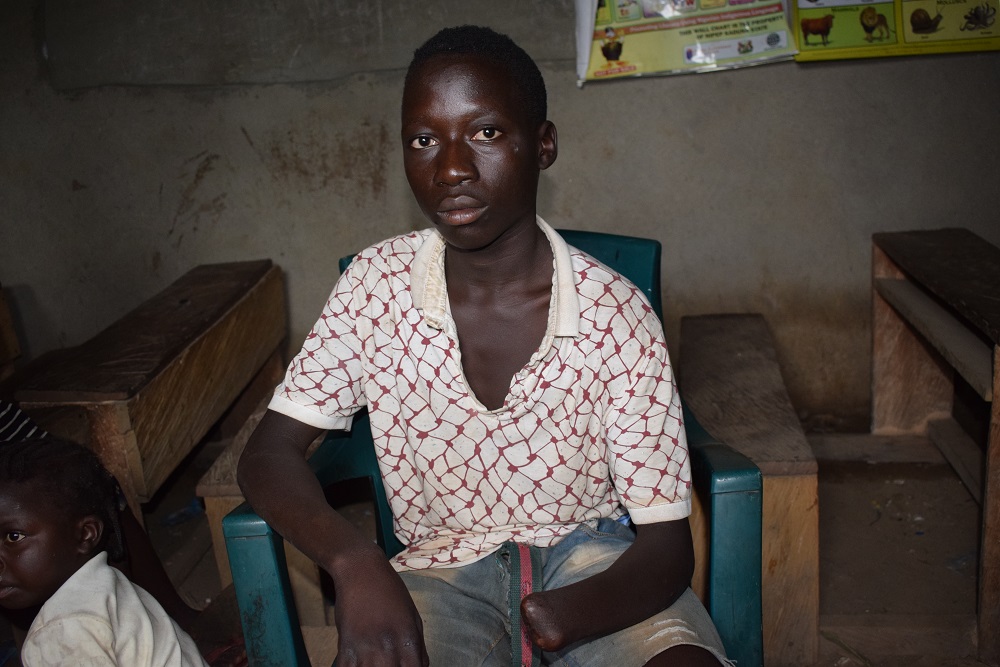
Friday Musa was determined to survive that attack by all means. As soon as it started, his father told him to run for safety. In the process of running, he was shot in his left hand, forcing him to hit the red earth. As he crashed to the ground, his attacker proceeded to machete him on his back and head.
Hellbent on surviving, he gathered the strength to stand up and continue running until the coast was clear. Friday, a JSS1 student, is now disabled, with only one arm fully functional. With his father dead, his elder brother has assumed breadwinner-ship of the family. All the money that accrued from farm produce after the last harvest was spent on hospital bills. As schools prepare to reopen nationwide, returning to the classroom is the last thing on Friday’s mind — survival is chief and feeding is king.
Advertisement
SCARRED WOMEN OF ZAGON-KATAF
Hanatu Kefas is one of the widows resident at Mercy IDP camp, Zonkwa. On August 18, she was on her way home from the farm with her baby strapped to her back when she was greeted with a resounding slap. Hanatu, 22, was six months pregnant at the time. Her attacker repeatedly threatened to shoot her and her child while pressuring her to reveal the whereabouts of her husband.
When she was not forthcoming, he asked the six months pregnant Hanatu to remove her blouse and “show him” her breast — after which he ordered her to roll around on the floor.
Having satisfied his perverted desire, he told her to hide in a pig farm so she does not get killed by his comrades in arms. Much later, Hanatu would learn that her husband was shot in the head during a tussle with the suspected herdsmen. Following her torture, Hanatu spent four days in the hospital receiving treatment. After getting discharged, she discovered that a liquid substance was oozing out of her nipple. “Water is still coming out from my breast and I don’t know why,” she noted in despair.
Advertisement
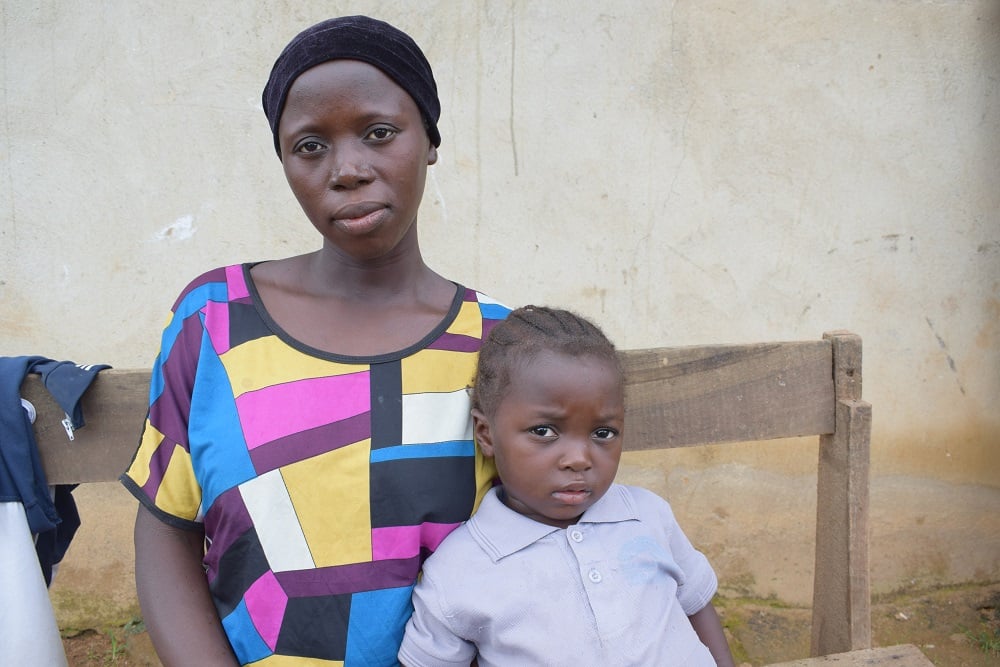
While Hanatu deals with a health issue she cannot afford to treat, Rebecca Joseph and her children are still haunted by the memories of the attack on their village.
Kibori was attacked around 10pm on a quiet July night. Rebecca said when she got wind of the chaos, she gathered her children and fled with them into the bush and remained there till daybreak. Upon their return to the village, they were rattled by the horror that lay in wait — burnt buildings, dismembered corpses, and missing body parts. The scenes were enough to make them decide to leave Kibori on foot and walk for several kilometres to Samaru where they eventually got a free ride to Zonkwa.
Advertisement
NO LONGER AT EASE
Advertisement
In 2019, the victim toll of the southern Kaduna conflict soared, the acts of daredevilry worsened and the attacks became more bloody. Hence, the world started paying attention.
Victims of those 2019 attacks are still reeling in the agony of loss, throes of pain, and trauma of violence. One of them is Rehila Godwin from Dogon Noma, Kajuru LGA. In March 2019, her village was attacked while her children were sleeping. She tried to run but did not get far. Surrounded by the attackers, she watched helplessly as her first child was killed before they descended on her — macheting her neck, mouth and chopping off her hand.
Advertisement
Owing to the severity of her injury, Rahila was left for dead. No one expected her to survive, hence she was tied up with a wrapper. But somehow, she managed to keep breathing until corpses were being gathered. She was discovered and promptly rushed to the hospital. While on admission, Rahila went into labour and her child was born — but the baby would only live for two days.
Veronica John, also from Dogon Noma, has been living in a world of pain ever since the attack. She has not been back to her village nor has she seen her three surviving children and husband. She once had four children but one was killed. While her three eldest children ran for their lives when the bloodletting began, Veronica picked up the last born who could not move as a result of the shock of the attack, strapped her to her back and began running for safety.
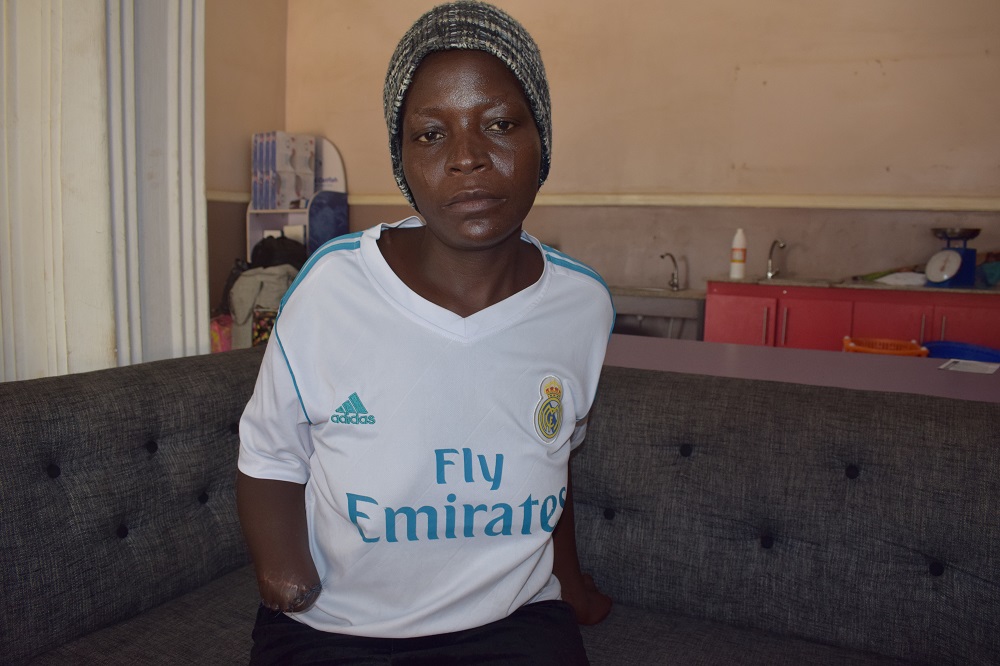
“I was sick so I could not run very fast. While we were running, we came across the attackers and they shot me. The bullet hit me in the shoulder and my child helped me clean the blood and said, ‘mummy, sorry’.
“I raised my hand and started pleading with them to spare us. They refused to listen. I told my daughter to plead with them. She did so and they forcefully removed her from my back and cut her head into two. After they killed my daughter, they started cutting me with a machete.”
Veronica’s hand was severely macheted and her forefinger was cut off. The affected hand would eventually be amputated after spending months in multiple hospitals in Jos and Kaduna where they tried in vain to fix it. The damage done was too severe.
Viviana Lucky, 25, was fortunate to escape alive when Ungwan Barde, in Kajuru LGA, twice came under attack. Although she survived, two of her fingers were sliced off, leaving her with just eight functional fingers. During that attack, Jummai Victor was not so lucky. She was having post-church lunch with her children when she heard a commotion. Her husband went to check for the cause only to discover that the village had been surrounded. He urged Viviana to take the children and run — but before they could get far, they landed in an ambush.
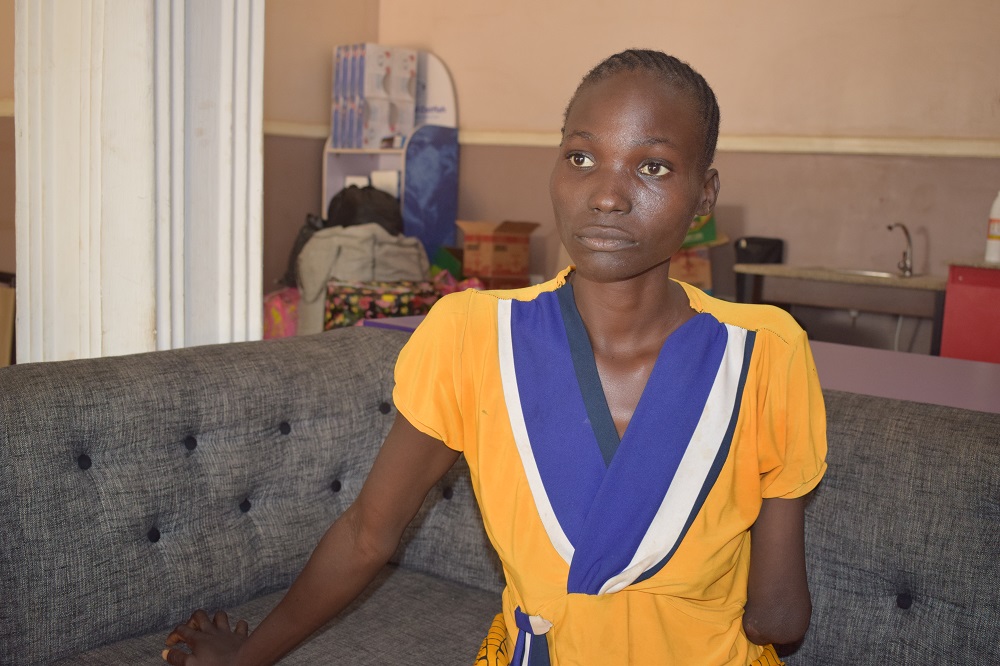
Jummai said she pleaded with the bandits to spare their lives but her cries fell on deaf ears as three of her children were butchered in her presence and her hand was severely macheted. She was pregnant at the time but later lost the pregnancy. When she got to the hospital, her hand was also amputated. Subsequently, her husband was involved in an accident and lost his leg. Nowadays, to survive, Jummai relies on handouts.
TRACKING THE FULANI IDPs
In every story, there are always two sides — sometimes more. While the largely Christian Atyap communities have been widely reported to be on the receiving end of the attacks, the Miyetti Allah Cattle Breeders Association of Nigeria (MACBAN) has continuously said its members and their families are also victims of reprisal attacks.
However, the challenge has always been locating displaced Fulani families, particularly the children and women since they cannot be found in IDP camps or in the communities where they were once resident.
“They are in different locations,” Bayero Ibrahim Zango, MACBAN spokesman, Kaduna chapter, disclosed when queried on their whereabouts.
He added: “Our people don’t form camps. They just go to their relatives and stay. They are terribly displaced and they are in dire need of assistance.”
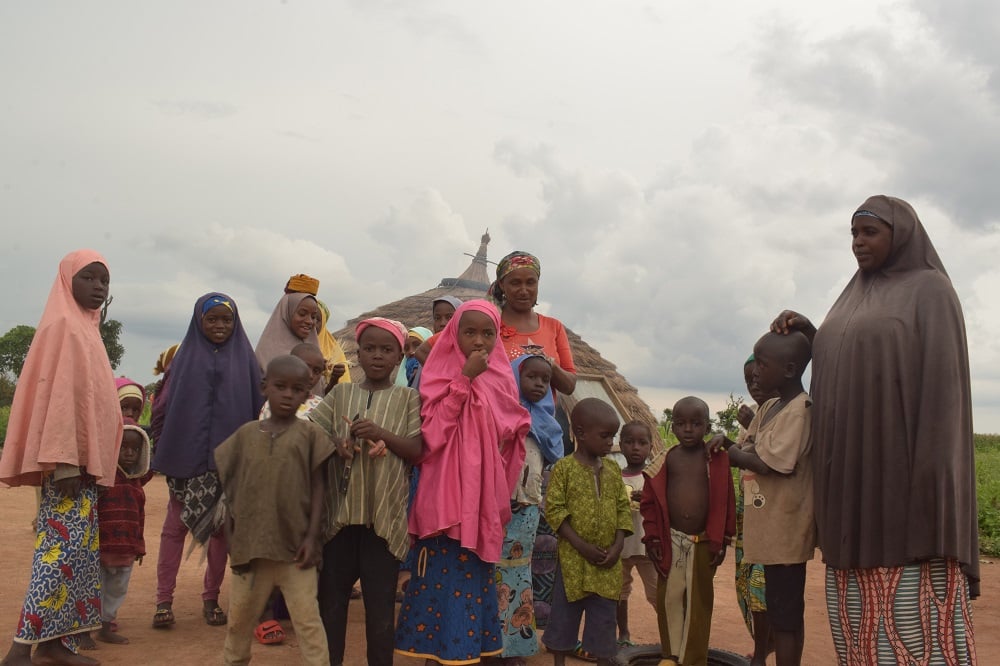
As it would turn out, more than 100 Fulani women and children migrated from Zangon-Kataf to Tilden Fulani, a settlement in Kachia. The settlement, which is about 35 minutes away from the Kachia expressway, can only be accessed via motorcycle.
Hajara Musa is one of the women who reside in the settlement. She used to live with her 10 children in Machan, Zangon-Kataf, but says they were forced to flee when Atyap youth invaded their home. Although they tried to run into the river, they were apprehended.
Hajara says they were taken back home where their attackers threatened to burn them alive. When there was no consensus on that course of action among their attackers, they were asked to run. The only home they know was set ablaze as they fled. They now reside in two mud-brick structures that were once used as an Islamiyya school.
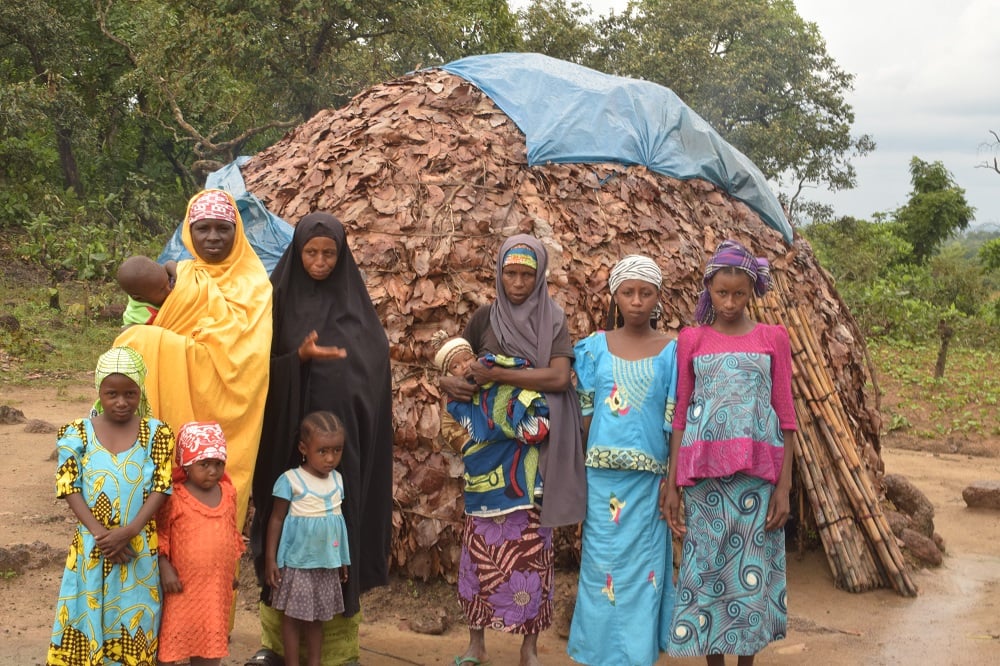
The Adamu family, on the other hand, migrated to the settlement in June after the attack on their home in Ungwan Gaya, also in Zangon-Kataf. Hafsat and Zainab Adamu lost their husbands in the attack. Between them, they have 11 children. Hafsat’s son, a 16-year-old, was killed while rearing cows in the bush.
According to Salamatu Hussein, the female leader of the Adamu household, an Atyap woman hid them from the attackers while they were trying to run away. Life, for them, is now a daily struggle as they rely on relatives and neighbours for basic needs.
TALE OF TWO AISHAS
“I had six children, they killed one and left me with five.” Aisha Alhassan and her family were sleeping when they jolted awake by the high-pitched sounds of whistles and screams of their attackers.
Their home was set ablaze while Alhassan’s 13-year-old son who was tending to the cows was waylaid and killed in the bush. That night, she says they sought refuge in the backyard of a Kataf family. The morning after, she came across the lifeless body of her son. This, she says, motivated them to flee to the river where they spent two days before her relatives found soldiers who came to their aid and took them to Mariri.
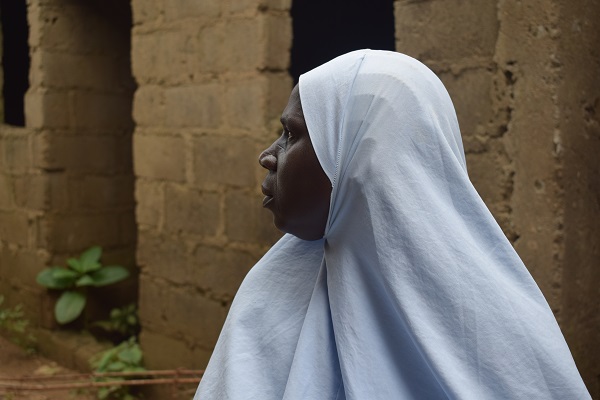
Since escaping from Kan Kurmi, Alhassan now lives in Mariri and has no means of making an income to take care of her family. Before the attack, her occupation was the selling of cow milk but she lost everything and is unable to resume her business as her stock in trade was burnt to ashes.
Aisha Alhassan and Aisha Hassan may have a name in common but the scale of their respective losses is by no means alike. While the former lost one son, the latter saw her three sons killed during an attack on Sagwoza.
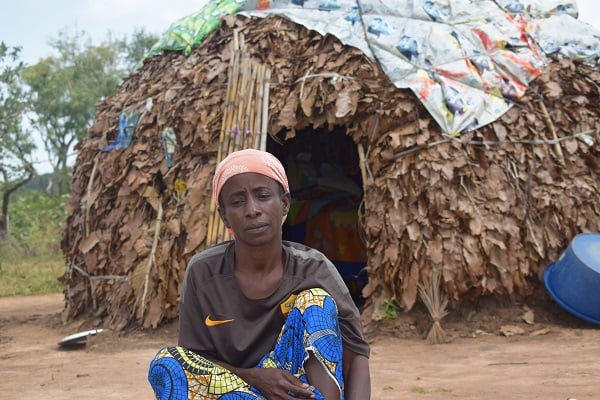
Hassan doesn’t like to talk about her bereavement. She has suppressed the events of that deadly night in June. Seeing as she wishes not to remember the killing of Abdul, Yusuf and Habu, it takes a great deal of prodding before she manages to divulge little.
After her sons were killed, Hassan went into a state of shock. She was stunned and numb. The 51-year-old said she doesn’t know how she was able to muster the strength to run into the bush with her remaining three children.
“It was by the grace of God that we were able to escape,” she adds, averting her gaze in a bid not to remember, not to relapse into mourning.
BORN AMIDST CONFLICT
Hauwa Abubakar, 28, was pregnant and near her due date when terror was unleashed on Rafin Sewa. The timing couldn’t have been worse. Her first instinct was to try to secure some of her belongings as she ran, but when the load began to slow her down, she was forced to choose between survival and salvaging properties. Her decision was a no-brainer.
While on the run, her water broke and she gave birth to a baby girl. Alone in the bush with no help, no medical assistance, she delivered herself of the baby and used her head tie to wrap the newborn.
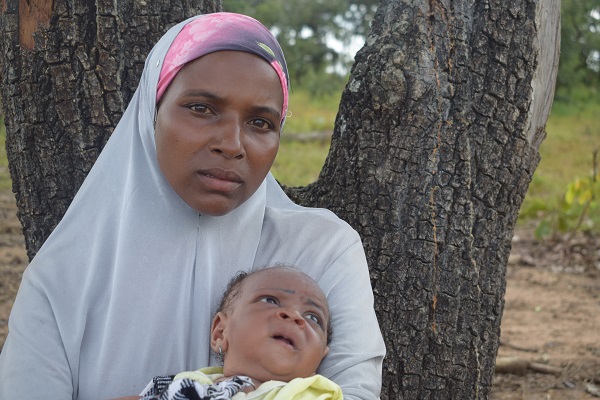
After giving birth, the new mother continued running, sensing that the coast was not yet clear. She remained on the run until she arrived at her relatives’ settlement where she got help. There, she was welcomed and the baby was bathed and clothed.
Like Hauwa, a few other Fulani women also gave birth while on the run. But none is as peculiar and striking as Hafsat Hamza, 38, and Shamsiya Abdullahi, 22.
Shamsiya is Hamza’s daughter and both were pregnant and expected to deliver around the same time. When Kurmin Gandu was attacked, expectant mother and daughter fled to the bush where they would spend several days.
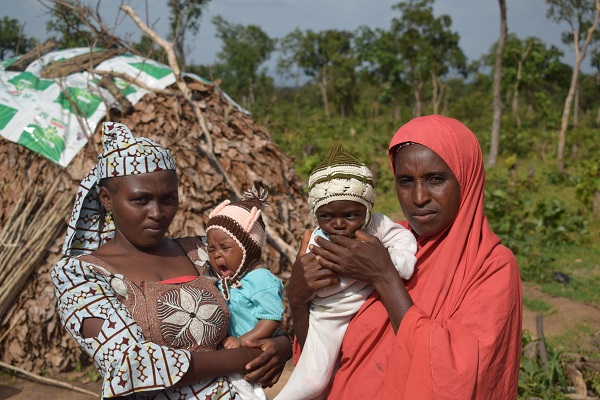
While Hamza gave birth in the rain on the evening of the attack, Shamsiya was in labour for three days before her child was born. Both women gave birth to girls and one of them was named after their grandmother who was left behind when they were forced to depart from their homes – and is now believed to be dead.
CHILDREN OF WAR
When war or conflict breaks out, children and women are often the most vulnerable. History has repeatedly shown this and the southern Kaduna crisis is another indication. Many children bear physical and mental scars of the killings. In every village, there is bound to be a story of one caught in the middle of the chaos and left with a haunting memory.
Experiences such as this harden the hearts of children and rob them of a normal childhood. Reverend Waziri, who runs the Mercy IDP camp in Zonkwa, disclosed that a boy of “six or seven” who was shot in the face during the attack on his village has vowed to take revenge when he grows up.
Just like the revenge-seeking boy, Rita Friday was spared no mercy when Tudun Doka of Doka-Avong, Kajuru LGA, was besieged by suspected herders.
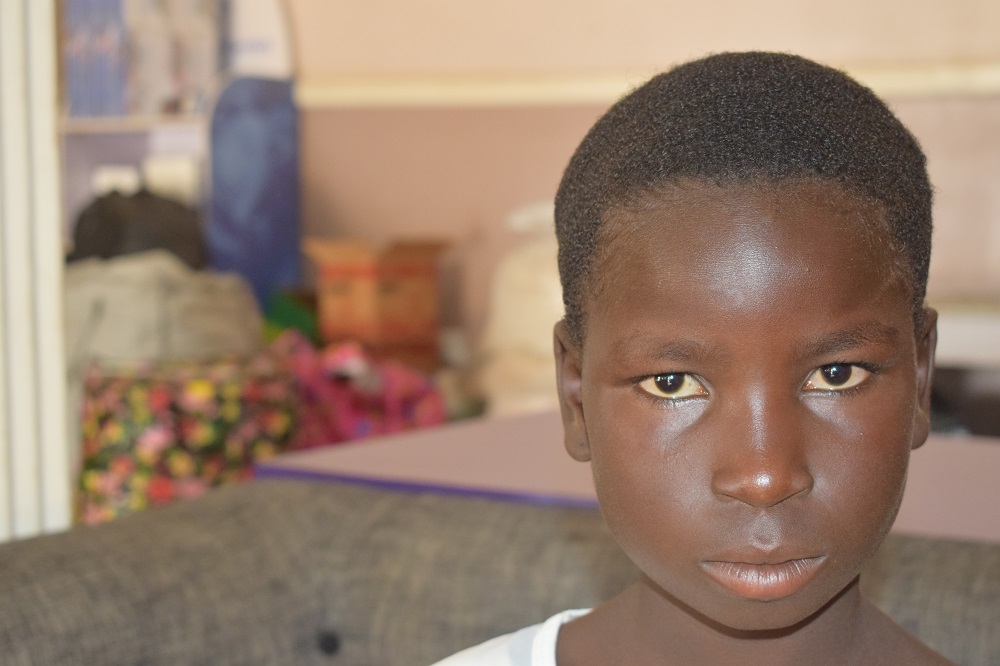
At just seven years old, she has come close to death — not at the hand of an ailment or a natural disaster, but human beings. Approximately 30 minutes after the attack on her village in June, first responders discovered her where she was left to die. Rita had been hacked on the head and blood was seeping out. Quick intervention and intensive treatment at the hospital got her stabilized.
Months later, she has almost fully recovered from the physical damage but the trauma is evident on her face, in her unwillingness to communicate, her unexplained tears and stoic expression. Rita lost her mother, elder brother and younger sister in the attack. Her father is all she has and someday, she may seek answers and accountability.
Isaiah and Zippora Jonathan as well as their toddler sibling from Gonan Rogo, Kajuru LGA, were not so lucky. They lost everything and everyone. Father, mother and three siblings were killed. Although Isaiah and Zippora were macheted in different parts of their body, they managed to make it out alive during the attack of May 2020. The toddler, on the other hand, miraculously survived the gunshot wounds that killed his mother.
Children who survive tragedies such as these may experience physical and mental health issues, says Daniel Folukoya, a medical doctor and founder of 1Dokita Healthcare.
Possible side effects of their jarring and abnormal experience, he said, are psychotic depression, paranoid schizophrenia, and the inability of the children to go back to their normal state before the attack.
“Those who have suffered a bereavement or witnessed their relatives being killed might suffer a reactive disorder,” Folukoya said. “They may go into depression or dysthymia. Some can end up in a psychotic depression where they are hearing voices and seeing things. They can end up living through the attack, hearing those voices or seeing those images over and over again. This can either manifest as auditory or visual hallucination.”
Folukoya said some of these children may also have psychosocial issues such as being unable to have normal interactions with people and struggling to communicate.
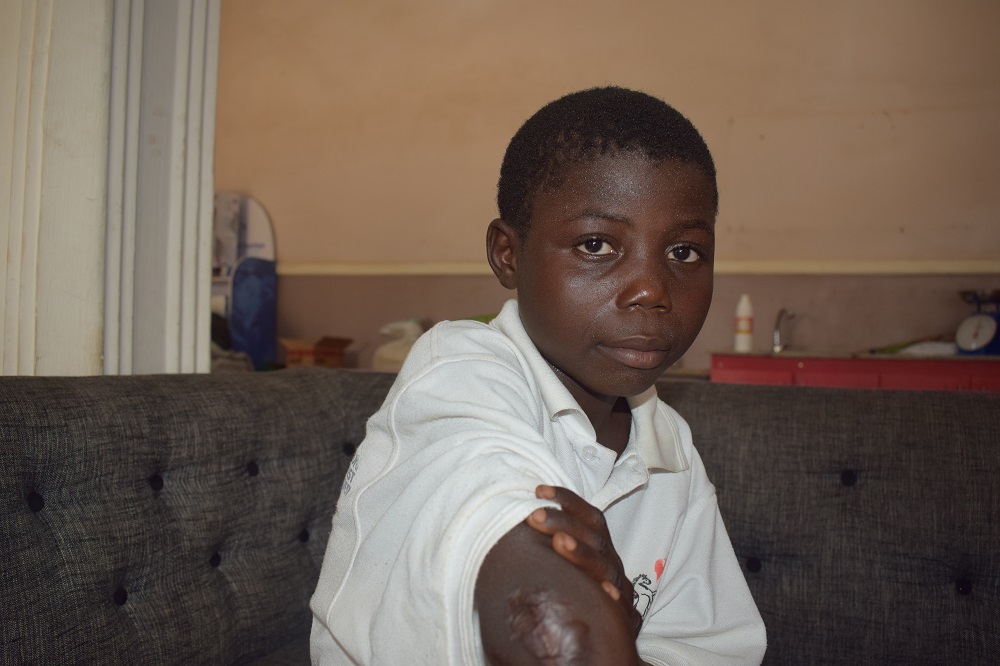
Jonathan Badamasi exhibited such signs when asked to share his ordeal during the attack on Dogon Noma. The 10-year-old boy is called the ‘Hero of Adara’ for saving his sister against all odds when his village was attacked.
As soon as he heard sporadic shooting and screams of panic, Jonathan backed his sister and took to his heels. While running, he was shot in his right elbow but rather than get deterred and resign to fate, he got back up, backed his sister again and continued running. Not even when he was shot again — this time in the stomach — did he stop running. He continued running, dodging bullets and taking cover until he was far away from Dogon Noma and found help.
This is a special investigative project by Cable Newspaper Journalism Foundation (CNJF) in partnership with TheCable, supported by the MacArthur Foundation. Published materials are not views of the MacArthur Foundation.


